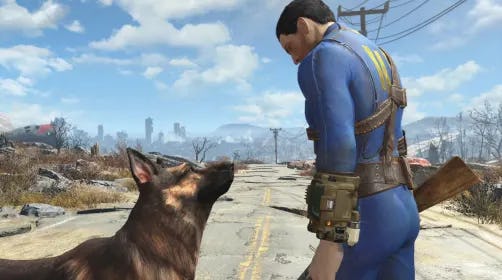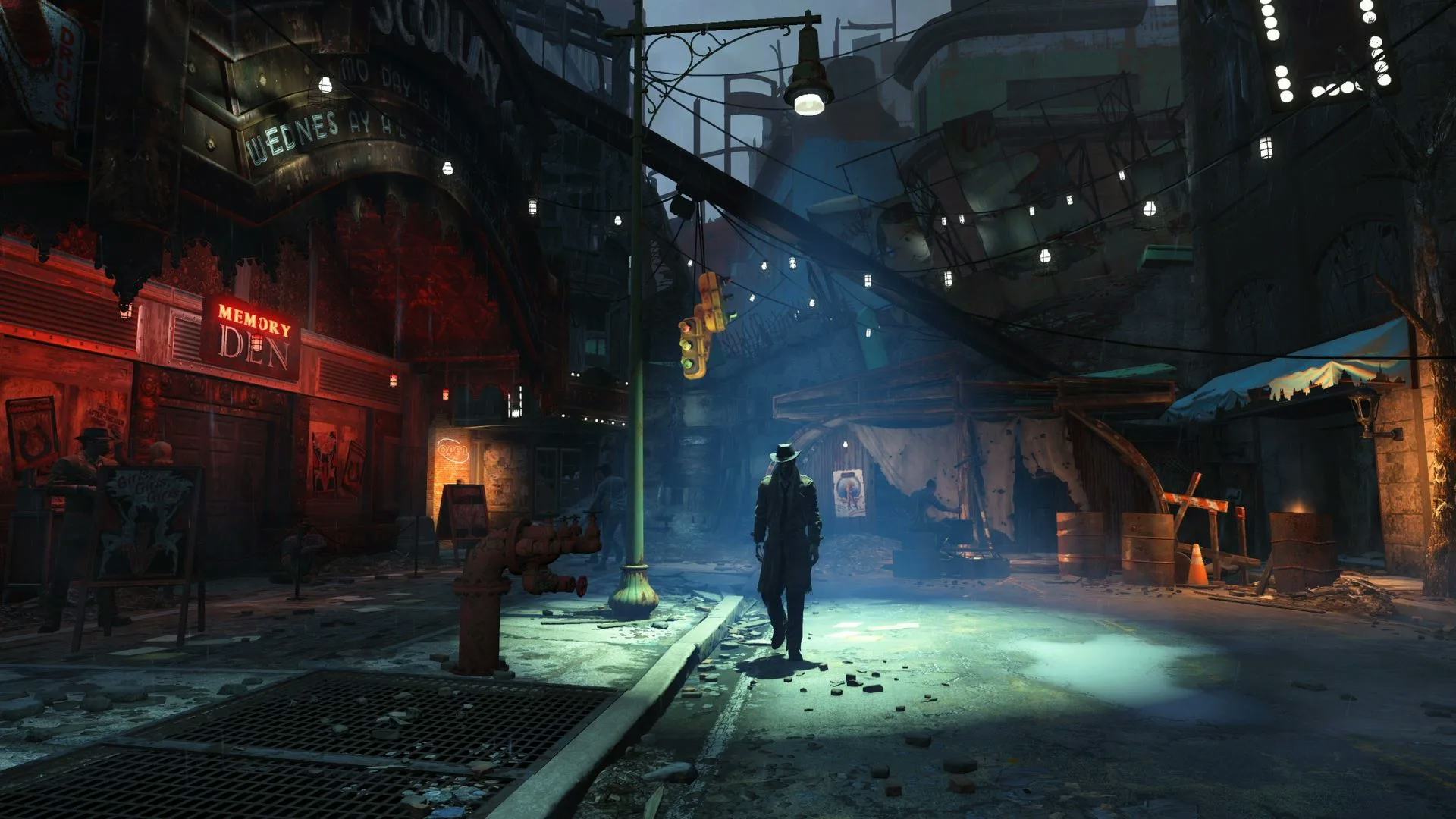
Bethesda Game Studios is interested in introducing proper referential crossovers between its multiplayer take on its post-apocalyptic role-playing game and the hit television series based on its fiction. But while this is fantastic news for Fallout fans, it does feel like this revelation is hitting the famed RPG maker a little later than it should. And that could potentially be a direct result of its trillion-dollar parent company’s biggest problem.
In an interview with Variety, Bethesda’s Jon Rush, creative director of the game Fallout 76, said that the development team is in communication with the showrunners of Amazon’s Fallout series. He suggested that the relationship would result in new additions players see added to the game down the line.
“Lining things up with the seasonal releases of the show [is] stuff that we talk about all the time, and we do have plans for things here and there,” Rush told the outlet. Those things might not be direct connections between the two, especially considering where the two fall on the broader Fallout timeline.
“A distinct trait of the Fallout 76 game is that we’re the furthest back in time. The show’s the furthest into the future,” he continued. “So there’s a lot of room where we don’t necessarily need to overlap.”

Rush said that the dev team would keep crossovers “pretty simple” in concept. So, at most, I’d expected quest items and easter eggs to work as cute nods to the show (similar to how games like Call of Duty and Fortnite handle pop-culture crossovers) rather than a full-on tie-in quest with story implications. However, even a step as simple as this is better than the dearth of Fallout content we got during the series' spike in popularity last year.
As Inverse noted several times last year, it’s fairly shocking that Bethesda didn’t coordinate something bigger to coincide with the show’s first season. Even if the Fallout series wasn’t the big critical hit it became, a big-budget TV show was always going to stir up old and new interest in the already popular game franchise. And yet, the best players got was a “next gen” patch for 2015’s Fallout 4, one that did more harm than good.
This sort of franchise mismanagement is indicative of a bigger issue for the parent company that oversees Fallout and Bethesda Game Studios. As tragic updates in recent weeks has revealed, Microsoft has struggled as a games publisher. Many of its biggest games, like Starfield, Fable, and Redfall taken forever to cross the finish line. In the absolute worst of situations, as was the case with Everwild and Perfect Dark, projects have been canceled outright after years' worth of development and resource expenditure.
The mismanagement of its extensive portfolio has seemingly extended to its most popular and proven commodities. It’s great that Fallout 76 developers now realize the misstep and are hoping to correct it in time for season 2. But it baffles the mind that Microsoft and Xbox leadership didn’t make that call in advance. Microsoft’s legal battle with the FTC revealed plans for both the Oblivion and Fallout 3 remakes back in 2023. Why wasn’t a call made for an all-hands-on-deck effort to push the remake across the finish line? As a live service game, Fallout 76 should have had a big blowout of added content related to the show, not just a handful of cool outfits.
Of course, I don’t mean to trivialize the effort and time that goes into game production. Making a proper RPG worthy of the Fallout name is a gargantuan effort. But when you consider Obsidian, one of gaming’s most efficient blockbuster game studios, was able to pump out a beloved direct Fallout 3 successor in just two years, it seems very doable with all of the company’s contemporary resources. What is the point of Microsoft owning as many developers and franchises as it does if it can’t make smart calls when it comes to managing them?
It’s frustrating to see a fan favorite series players all want to see more of languish at the most inopportune time. And after this mismanagement led to multiple studio closures, game cancellations, and hundreds of workers laid off, I hope the company will make it a priority to better manage its most compelling series and studios.
While the overall franchise is on an inexplicable hiatus, Fallout 76 has continued to roll out content for its dedicated player base. Earlier this year, Bethesda added a way to play as an immortal Ghoul, letting players roleplay one of the protagonists of the TV series. And in May, a new fishing minigame was added, letting players seek out rare catches across Appalachia.

.jpg?w=600)





